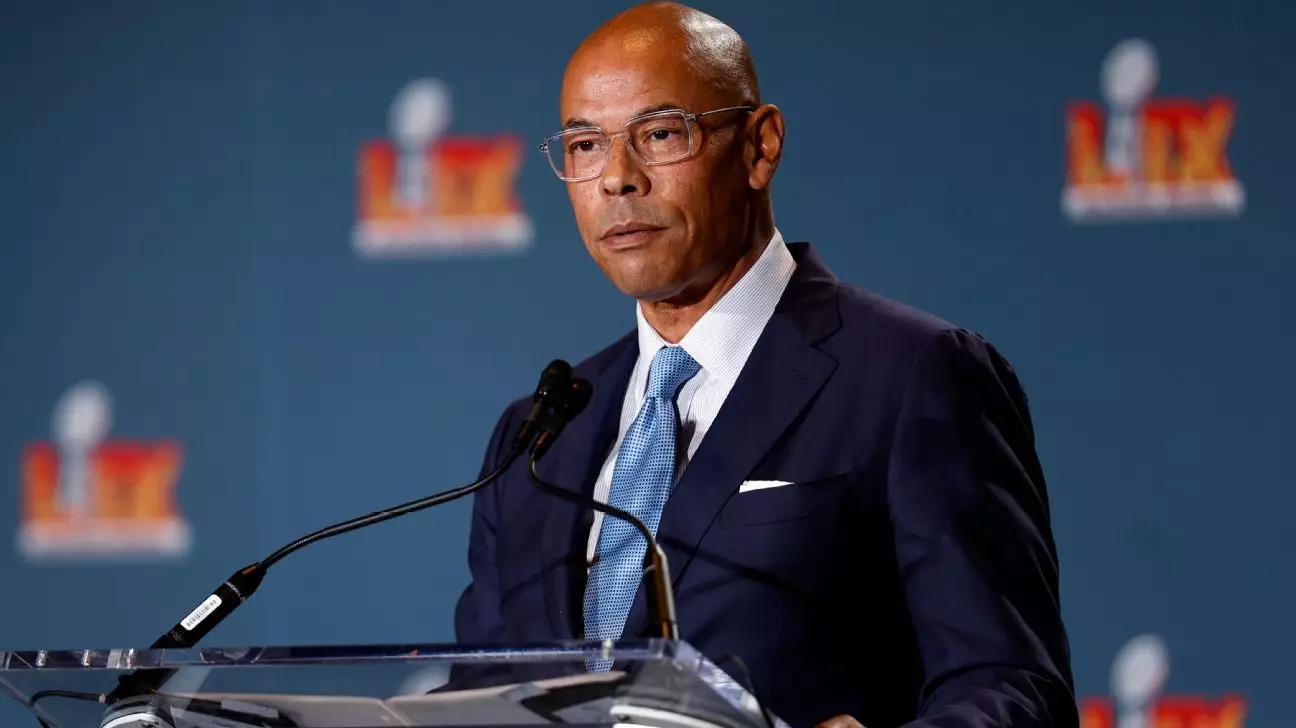In the complex realm of professional sports, leadership roles such as the NFL Players Association’s Executive Director are more than administrative titles; they embody the hopes, careers, and collective bargaining power of hundreds of athletes. Lloyd Howell Jr., stepping into this pivotal role in 2023, was entrusted with steering the union through turbulent waters. Nevertheless, recent reports raise serious questions about the transparency and stability of his leadership, challenging the very core of union solidarity. The NFLPA’s executive committee’s defense—emphasizing their support and denying any calls for Howell’s resignation—reflects not just loyalty but a desperate attempt to maintain unity amid controversy. Yet, behind this façade lies a deeper issue of accountability and the union’s capacity to confront internal conflicts honestly.
Power Struggles and Hidden Agendas
The controversy surrounding Howell’s engagement as a part-time consultant for the Carlyle Group—one of the league-approved private equity firms seeking ownership stakes—exposes the blurred lines between union leadership and corporate interests. On the face of it, union leaders are supposed to prioritize players’ well-being and advocate for fair contracts. Discovering Howell’s involvement with Carlyle, especially amid reports that union counsel advised him to step away to avoid conflicts, raises red flags about potential conflicts of interest. It suggests a leadership that may be more entangled in private dealings than transparent or accountable to the very individuals they serve. The union’s refusal to demand Howell’s resignation under such circumstances signals either a loyalty to their leader or a hesitance to confront issues that could threaten union stability and credibility.
Secrecy and the Lack of Transparency
Compounding these concerns is the revelation of a confidentiality agreement that barred players from accessing the details of a critical arbitration ruling. The decision by Arbitrator Christopher Droney, which revealed possible league-induced collusion regarding player compensation, was kept secret from the union members, allegedly until media reports broke the story via the “Pablo Torre Finds Out” podcast. Such opacity is troubling; it implies an organizational desire to control information, potentially at the expense of player rights and transparency. When union leaders choose secrecy over honesty, it undermines their moral authority and fosters suspicion among players, who are the union’s primary constituency.
The Union’s Response and Its Implications
The NFLPA’s immediate response—supporting Howell and affirming their commitment to protect their union’s integrity—appears more reactive than reflective. Hiring an external lawyer, Ronald C. Machen, to review Howell’s activities indicates acknowledgment of internal concerns but also possibly signals internal discord. The decision to appeal the arbitration ruling demonstrates a strategic move to challenge findings that may threaten the league’s reputation or their own contractual negotiations. However, the union’s steadfast backing of Howell, despite mounting evidence of questionable conduct, raises doubts about whether the union truly champions transparency or merely protects its leadership structure at all costs.
The Larger Battle for Trust in the NFLPA
This internal crisis highlights a broader issue—trust. When union leadership becomes embroiled in conflicts of interest, opaque decision-making, and internal investigations of questionable activities, it weakens its moral standing with members. Players rely on the union to fight for better pay, conditions, and justice; they deserve leadership that is above reproach and committed to accountability. The inability—or unwillingness—to openly address these issues signals a need for a fundamental overhaul in how the NFLPA operates. Ultimately, the strength of any union lies in its transparency, credibility, and unity. If the NFLPA’s current trajectory persists, it risks eroding the very foundation upon which it was built—including the trust and solidarity of its players.


Leave a Reply